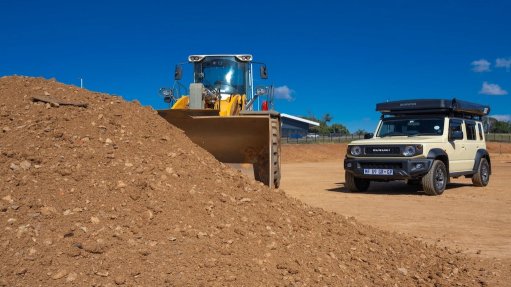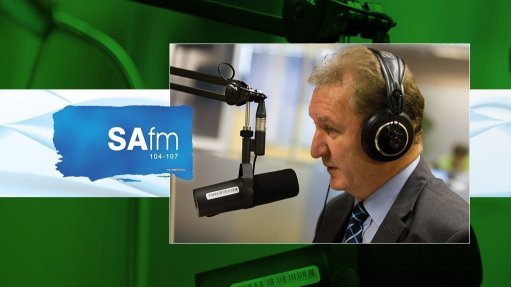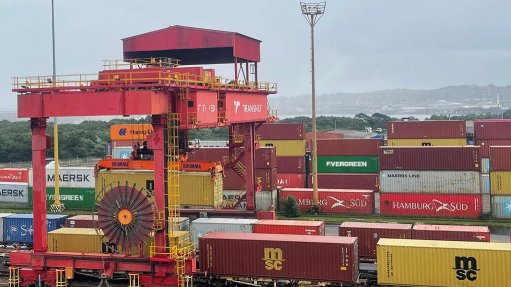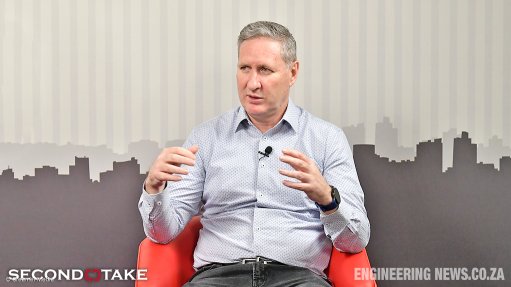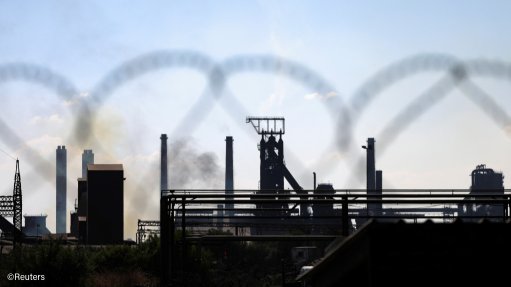Locally produced engineering steel declining

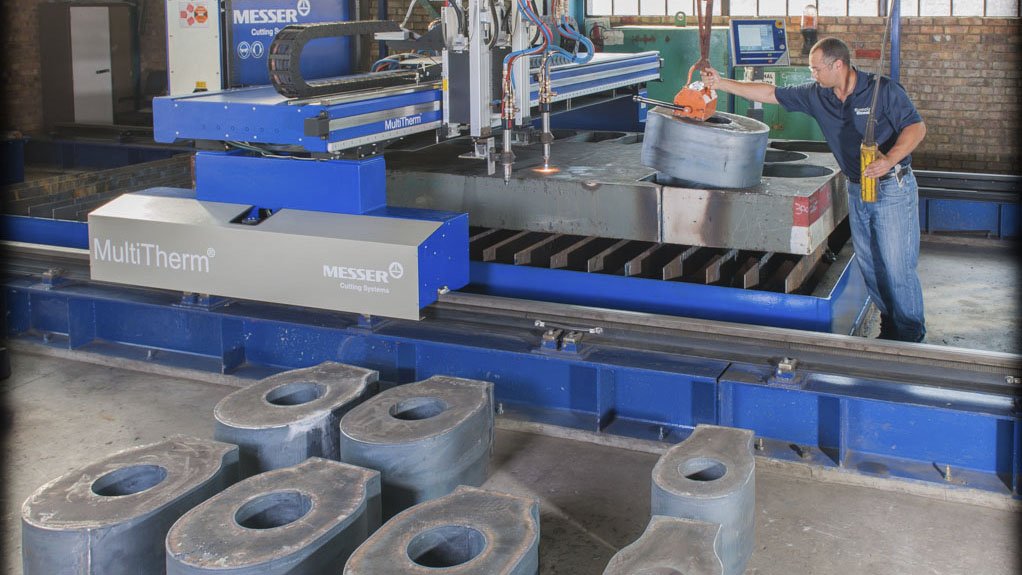
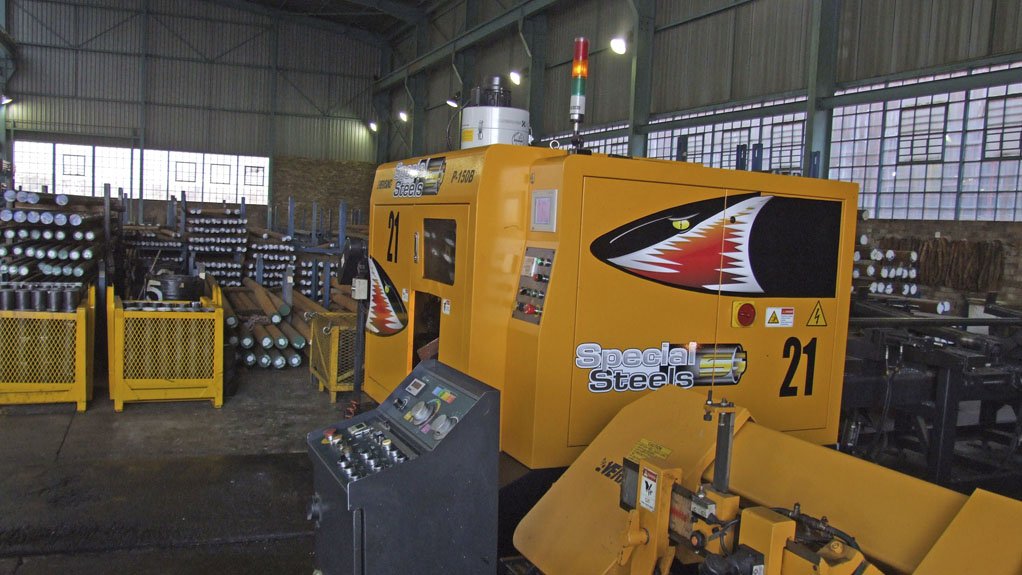
HIGH PROFILE Hydraulic cyclinder components being cut from a 300 mm carbon steel plate at Special Steels
P150 A high-speed circular saw, used for cutting steel with a diameter of up to 150 mm thick
It has become cheaper to import finished products manufactured overseas than to manufacture engineering steel in the country, which has resulted in more than half the country’s foundries closing down, laments specialised steel and industry expertise company Special Steels MD Byron Ferguson.
He notes that, with South Africa’s scarce manufacturing facilities, options for having a special piece of steel forged are limited and costs are higher, leaving many companies with no choice but to import.
As a result, Ferguson notes that the steel industry is attempting to adjust capacity to meet this demand, which has drastically decreased, in line with the manufacturing sector’s contribution to the gross domestic product (GDP).
“This has presented South Africa with some strategic problems, including the possibility of losing the ability to manufacture its own steel and limited local availability to steel manufacturers.” The industry is further being affected by protectionist policies, which refer to defensive policies that limit unfair competition from foreign industries, while hampering domestic industries’ ability to compete globally.
The protectionist policy has resulted in higher input costs for the downstream steel industry – a burden it must bear while trying to compete.
Protectionist Policy
Ferguson says it makes sense why local protectionist policies are important, but they are being mismanaged, as government should not be allowed to impose import tax duties on goods that South Africa does not manufacture.
“About one-third of a ton, used by Special Steels clients, cannot be produced locally, but there is a 10% duty on it, which clients of Special Steels are forced to pay.”
Ferguson adds that the industry’s issues with the policy should have been flagged by government straight away, and warns that, if not resolved timeously, complications will arise.
Contributing Factors
The steel industry is suffering a steady decrease in demand, resulting in fewer blast furnaces, forge shops and foundries, as well as steel manufacturing’s decreased contribution to GDP, says Ferguson.
There has also been reduced interest in large-scale mining activity in South Africa, which directly affects the country’s steel consumption. In addition, the increase of manufacturing costs in South Africa, in conjunction with the fall of commodity prices at the end of 2013, has led to completed products being imported more regularly, he adds.
Moreover, the steel and mining industries are interconnected, with 90% of steel sold by Special Steels being used for mining machinery. “If prospects for the future look dim for mining in South Africa, this too will have a direct, negative impact on the steel industry,” mentions Ferguson.
Labour unrest and union difficulties add to the uncertain climate of the local steel industry. Labour strikes have made for a difficult business environment, and high labour rates and militant strikes add to this burden.
The volumes of special or engineering steels have been declining by about 10% a year over the past three years, says Ferguson, with companies having to diversify into other areas of steel to maintain a constant tonnage. Although diversification meant Special Steels’ tonnage did not decrease, it did remain flat, with no increase.
Further, increasing costs for electricity and the renting of warehouse space also make the industry a challenging environment because these costs are difficult to sustain amid decreasing demand.
Demand for steel has shifted from new projects and new machines prior to 2014 to more machine repair after 2015. “Previously, a company would have bought enough steel to manufacture a new machine, but now only buy enough to make the necessary repairs. The volume of cutting has also increased over the past four years . . .” says Ferguson.
The global steel industry’s issues are much the same as South Africa’s – older domestic steel mills must compete with newer, more efficient mills in the East, and combined with higher domestic manufacturing costs and China’s export subsidisation policies, this has resulted in the imposition of protectionist policies globally.
Comments
Press Office
Announcements
What's On
Subscribe to improve your user experience...
Option 1 (equivalent of R125 a month):
Receive a weekly copy of Creamer Media's Engineering News & Mining Weekly magazine
(print copy for those in South Africa and e-magazine for those outside of South Africa)
Receive daily email newsletters
Access to full search results
Access archive of magazine back copies
Access to Projects in Progress
Access to ONE Research Report of your choice in PDF format
Option 2 (equivalent of R375 a month):
All benefits from Option 1
PLUS
Access to Creamer Media's Research Channel Africa for ALL Research Reports, in PDF format, on various industrial and mining sectors
including Electricity; Water; Energy Transition; Hydrogen; Roads, Rail and Ports; Coal; Gold; Platinum; Battery Metals; etc.
Already a subscriber?
Forgotten your password?
Receive weekly copy of Creamer Media's Engineering News & Mining Weekly magazine (print copy for those in South Africa and e-magazine for those outside of South Africa)
➕
Recieve daily email newsletters
➕
Access to full search results
➕
Access archive of magazine back copies
➕
Access to Projects in Progress
➕
Access to ONE Research Report of your choice in PDF format
RESEARCH CHANNEL AFRICA
R4500 (equivalent of R375 a month)
SUBSCRIBEAll benefits from Option 1
➕
Access to Creamer Media's Research Channel Africa for ALL Research Reports on various industrial and mining sectors, in PDF format, including on:
Electricity
➕
Water
➕
Energy Transition
➕
Hydrogen
➕
Roads, Rail and Ports
➕
Coal
➕
Gold
➕
Platinum
➕
Battery Metals
➕
etc.
Receive all benefits from Option 1 or Option 2 delivered to numerous people at your company
➕
Multiple User names and Passwords for simultaneous log-ins
➕
Intranet integration access to all in your organisation









